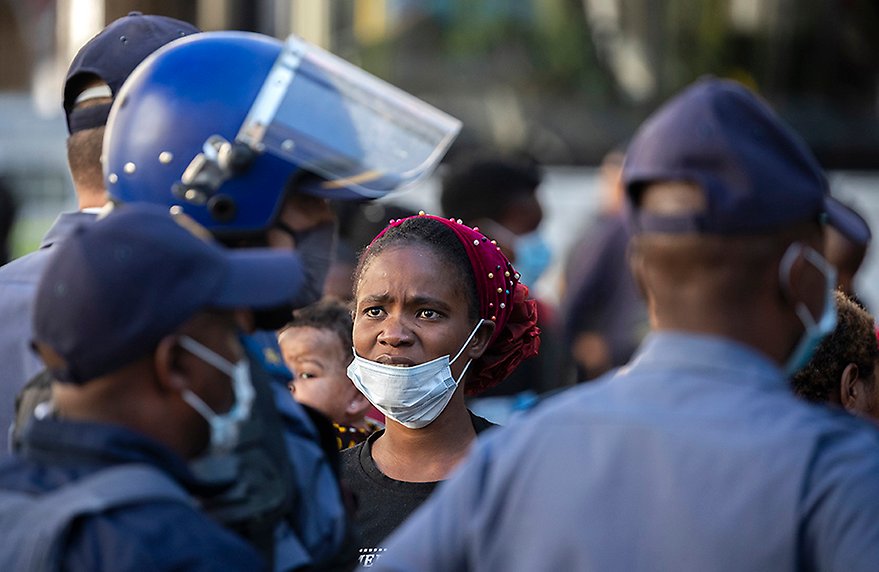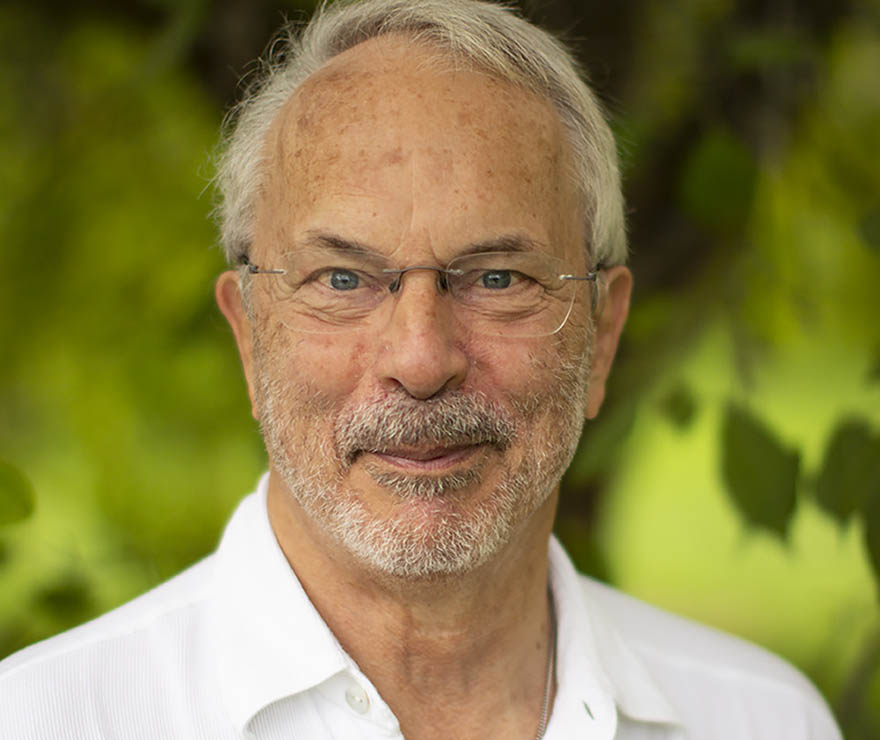Africa needs tailored responses to coronavirus

The South African government is enforcing a 21-day total lockdown to try stem the spread of the coronavirus. Photo: EPA/NIC BOTHMA
In societies where daily life takes place in the streets, preventive isolation and lockdowns put people’s livelihoods and survival at risk. NAI researcher Henning Melber calls for flexible strategies against the coronavirus outbreak in African countries.
The strategy of preventing the further spread of Covid-19 by closing down open markets and banning street vendors will affect people’s livelihoods and access to affordable food.
With no social safety nets and little in the way of individual savings, most people have nothing to fall back on. While the immediate economic effects are bad enough, according to Melber a lockdown, like the current one in South Africa, also destroys coping mechanisms for people living on the margins.
“One needs the community to survive. This might be difficult for Europeans to understand, but it is an obvious fact in an African context. Social networks are institutional systems for dealing with poverty and the struggles of everyday life. When social gatherings are prohibited, those systems become defunct. What do people have left then?”, Melber asks.
“Taking this into account, I am worried that the measures being taken against coronavirus might in fact worsen the situation for many. There are risks of spreading the virus among vulnerable groups, yes; but there are also risk factors for the poor in the government’s strategy to fight the virus”, Melber notes.

Henning Melber.
He does not think that a strategy designed for Western societies will necessarily work for most people in different African contexts. However, differences in class-related living conditions within African societies are often even greater.
“In a country like Sweden, a single strategy for everyone may work because people’s lives have many commonalities. But from the perspective of a South African township, the posh suburbia of the well-off is another planet. Multiple strategies adjusted to different spatial and class-related realities are therefore necessary”, Melber notes.
“Imagine living in 30 square metres with seven other people, with the neighbouring family only a few feet away. How does social distancing work then? How do you wash your hands if there is no running water? The government might open a communal tap, but then people will have to stand in line queuing”.
Melber also points out that the demographic structure in African countries, in terms of the age pyramid, is the complete opposite of that in Europe – in particular, in Italy and Spain, the two countries worst affected by coronavirus. In Africa, vulnerability to Covid-19 probably relates more to underlying health conditions than in other parts of the world where the elderly are most affected.
According to the World Health Organization, 26 million people on the continent are living with HIV, which compromises the body´s immunity to other diseases and makes nutrition crucial. And 58 million children are malnourished, if not stunted.
In South Africa, the enforced lockdown has already turned violent. On social media, eye-witness testimonies and videos document police brutality, including harassment of homeless people who have nowhere to go. For Melber, this is not surprising, given that it is only 25 years since apartheid.
“It takes more than one generation to make people trust government institutions and, likewise, for state authorities to learn to behave humanely towards citizens. This is a big problem now, when there is a rigorously applied state intervention. Understandably, most people still view such top-down approaches with suspicion. To ease this, authorities should involve local and communal leaders, who are often more respected and trusted than state officials”.
“All these factors – people’s harsh economic reality, generally weak health conditions, the poor state of public health systems and widespread mistrust in state institutions – mean that Covid-19 poses a massive challenge to African societies and governance. I am afraid we are only just seeing the beginning of it”, Melber concludes.
TEXT: Johan Sävström
